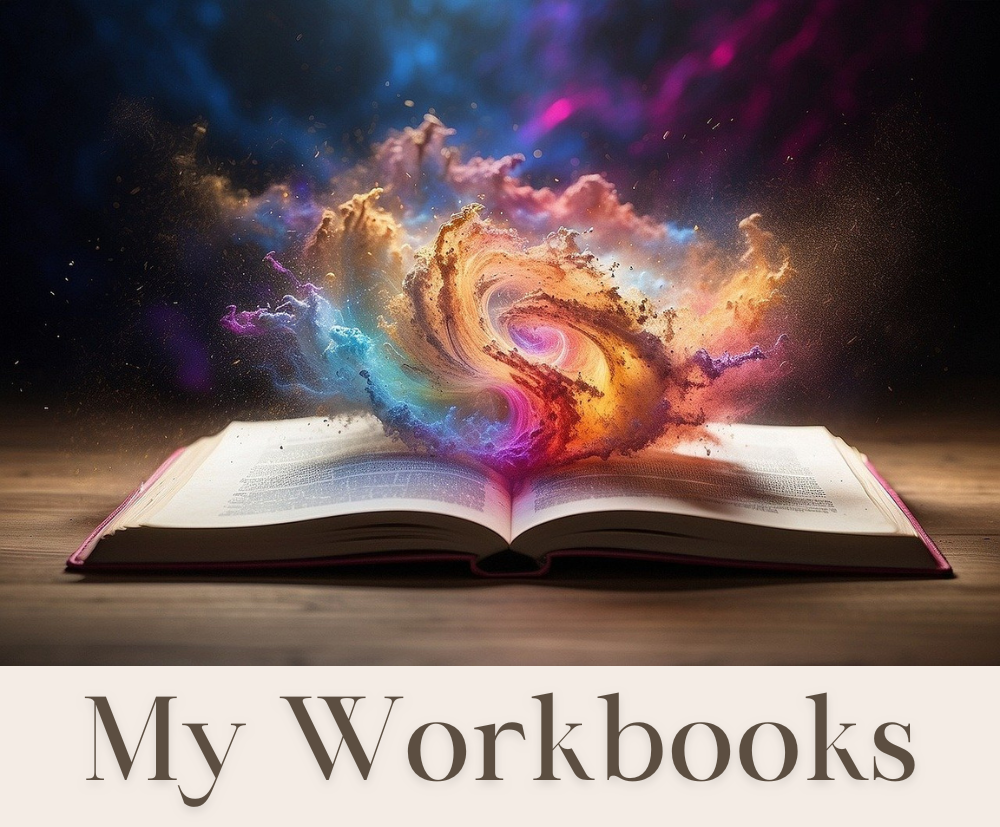How to Start Journaling: A Beginner's Guide
Ever feel like your mind is a cluttered browser with too many tabs open?
You're absorbing countless thoughts, opinions, and information all day through social media, work meetings, family discussions, and even podcasts.
By the time your day winds down, your brain might feel like it's swimming in everyone else's thoughts but your own.
That's where journaling comes in; it's your mental reset button.
Why Start Journaling?
Journaling isn't just scribbling your day's events; it's a powerful tool to reclaim your mental clarity.
Journaling gives you permission to tune back into your own voice. It's a vulnerable practice that invites honesty, helping you process emotions and reconnect with what matters to you.
At first, dedicating this time to yourself might even feel self-indulgent, especially if you're not used to slowing down and prioritizing your inner world. But over time, it becomes a grounding ritual that supports clarity, healing, and deeper self-understanding.
Different Types of Journaling
One of the biggest challenges when starting a journal is figuring out a method that feels right for you and your way of expressing yourself. Making it easy and accessible can make all the difference in sticking with the habit.
It may take a little trial and error to discover your style, but here are a few things to keep in mind.
Gratitude Journaling
This is the perfect entry point. It requires minimal time and offers maximum impact. Using easy-to-follow prompts or simply listing three things you're grateful for each day can make a huge difference. Research even shows that expressing daily gratitude can help reduce depression and stress, leading to increased happiness.
(Consider tools like the Gratitude Journal for guided support.)
Daily Documentation
If exploring your emotions feels a little too heavy right now, you can simply start by documenting your day. Write about what happened, who you spoke to, or how you spent your time. Reading back on these entries later might feel nostalgic, and you may even start to notice patterns and habits about yourself that you weren't aware of.
Stream of Consciousness Journaling
Made popular by Julia Cameron, "Morning Pages" involve writing three pages of free-flowing thoughts every morning to clear your mind. If that sounds overwhelming, start with just one page and see where it takes you. This practice can unlock creative ideas and help you release mental clutter.
Reflective Journaling
This method goes deeper, encouraging you to explore your thoughts, experiences, and emotions. Ask yourself meaningful questions like "What did I learn today?" or "How did I feel in that situation?" Reflective journaling helps you gain valuable insights and promotes emotional growth.
Exploring Your Past
Delving into your past through journaling can be incredibly healing. Whether you're reflecting on joyful memories or processing difficult experiences, writing about the past helps you make sense of it. You might start by picking a particular year or period of your life and seeing what comes up naturally. This approach allows you to gently explore whatever you're comfortable with.
Dream Journaling
Our dreams are often the brain's way of processing information and emotions. Keeping a dream journal can help you tap into your subconscious mind, analyze recurring symbols, and uncover important signs and patterns. Upon waking, jot down as many details as you can remember. Over time, you might discover valuable insights hidden within your dreams.
(Consider tools like the Dream Journal for guided support.)
Planning Your Actions
Use your journal as a proactive tool for future planning. The Odyssey Planning method suggests creating three distinct five-year life plans, each reflecting a different potential path you could take. This method encourages flexible thinking, empowering you to see various fulfilling futures rather than fixating on a single, rigid plan.
Physical vs. Digital Journals
I’ll be honest, I go back and forth with this. Some days, I crave that intimate connection of writing on paper. There’s something therapeutic about writing on paper and watching your thoughts spill out in real time. It feels raw, honest, and personal, almost like having a quiet, meaningful conversation with yourself.
Other times, especially when life feels busy, or my thoughts are coming in faster than I can write, I reach for my phone. Typing into my notes app helps me keep up with my thoughts in the moment, and it makes journaling feel more accessible when I'm on the go.
On days when even typing feels like too much, I might record my voice instead. Speaking out loud helps release those bottled-up emotions and allows me to process in a different, yet equally powerful, way.
The truth is, there's no right or wrong. What matters is finding a method that helps you stay connected and consistent.
Facing Your Biggest Barriers
Once you figure out what type of journaling you'd like to try, staying consistent can become its own challenge. But don’t worry, this is completely normal, and there are gentle ways to work through it.
Forgetting to Journal
Life gets busy, and forgetting is part of being human. The good news is that this can easily become a habit when you weave it into your morning or night routine. You can also try setting a reminder at the same time every day to make it a natural part of your flow.
Feeling Rigid or Pressured
While routines are helpful, they shouldn’t feel like shackles. Give yourself permission to be flexible. You don’t need to write for a set amount of time or commit to journaling daily. Some days you might write a lot, other days just a sentence, and that’s perfectly okay.
Lack of Motivation
If you're struggling to feel motivated, it might be because journaling doesn’t feel connected to something meaningful yet. Turn it into an act of self-care. Brew a delicious latte, slip into cozy clothes, or take your notebook to the park and write while listening to birdsong. If motivation still feels out of reach, consider using a guided journal to help ease you in.
Worrying About Privacy
Being vulnerable can bring up concerns about privacy. To ease your mind, you can use a locked journal or an encrypted app. If you're truly private, write on loose sheets and discard them afterward. Some even make arrangements for trusted loved ones to handle their journals after they pass. Do what makes you feel safest.
Overthinking Your Words
This is not an assignment. You don't need to impress anyone or make perfect sense. Journaling is for you and you alone. Let your words spill out naturally, even if they seem jumbled or messy. The goal isn’t perfection, it’s expression.
Journal Prompts For Inspiration
If you're not sure what to write, no worries — guided journal prompts can really help. Here are a few to get you started.
Final Thoughts
I get it, life can get so noisy that it’s easy to lose touch with your own thoughts and feelings. That’s why I believe journaling can be such a grounding and powerful practice. Whether you choose the tactile comfort of pen and paper or the convenience of a digital format, what matters most is finding what feels natural and comfortable for you.
That said, it’s totally normal to hit a few bumps along the way. Maybe you forget to journal, feel unmotivated, or worry about privacy. Those moments are part of the process. Be gentle with yourself as you figure it out. With a little patience and self-compassion, journaling can shift from something you “should” do to something you actually enjoy and look forward to.
There’s no perfect way to do this. Simply showing up for yourself and creating space to be honest and vulnerable is more than enough.
Take care,
-Emilia ♡











Start your year with ease, not overwhelm. These positive statements encourage slow living, self-kindness, and letting go of pressure, because you don’t need to hustle to feel whole.